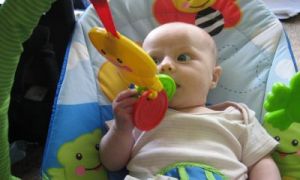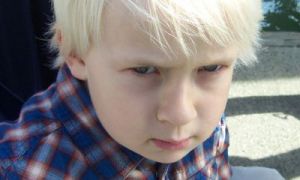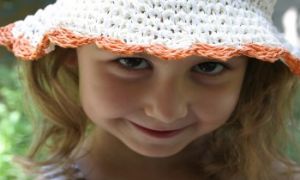

Helping children develop a strong sense of identity, confidence, and independence is essential for their overall well-being and future success. The following article provides information on Strategies To Support A Child's Strong Sense Of Identity, Confidence and Independence, Strategies Tailored To Different Age Groups, Real Life Examples Of Fostering Independence, What Is A Strong Sense Of Identity, Self-awareness In Identity Development, Self Awareness Skills For Toddlers and Preschoolers and Linking NQS and EYLF To A Strong Sense of Identity, Confidence, and Independence
Group learning in early childhood offers numerous benefits that support children's cognitive, social, and emotional development. The following article provides information on the Benefits of Group Learning, Group Learning Strategies, Group Learning Activities, Strategies To Encourage Positive Behavior In Group Learning and more.
Independent play is a fantastic way for children to develop creativity, problem-solving skills, and confidence. The following article provides information on Benefits Of Independence Play, Practical Strategies To Encourage Independent Play, Why Do Children Struggle With Independent Play, Tips For Encouraging Independent Play, How Does Independent Play Change As Children Grow, Fostering Independent Play At Different Stages and more.
Here are some ways to dye pasta, whether for crafts, sensory play, or even naturally coloured edible pasta.
Educator burnout in early childhood services is a serious issue, but there are ways to manage and prevent it. The following article provides information on What Is Burnout?, What Workplace Adjustments Can Help Reduce Burnout, Strategies On Dealing With Educator Burnout and more.
Getting little ones to wear a jumper in cold weather can be a challenge, but making it fun and relatable can help! The following article provides Startegies On Encourage Children To Wear A Jumper Outside When It's Cold During Play, What Are Some Specific Examples Of Games To Encourage Wearing Jumpers?, What Are Some General Strategies To Encourage Children To Wear Warm Clothing?, Will A Child Get Sick If They Don't Wear A Jumper On A Cold Day and more.
The following article provides a list of 25 creative team project ideas designed to engage early childhood educators in a meaningful, hands-on way.
Cold weather play is incredibly beneficial for early childhood development! It helps children build resilience, strengthen their immune systems, and develop essential motor skills. Here’s why outdoor play in winter is important.
The "100 Languages of Children" is a concept from the Reggio Emilia Approach, an educational philosophy that emphasizes children's diverse ways of expressing themselves and learning. This approach encourages children to explore their creativity, curiosity, and individuality through various mediums, fostering a deeper understanding of the world around them.
The following article describes the actions to take if you think a child or a staff member is sick or if a notifiable disease occurs in the education and care service; it includes information on Watching For Symptoms In Children, Identifying Severe Sickness, What To Do If A Child Seems Sick, Keeping Records and more.
 Toddlers have a greater understanding of the world around them by this stage. Their cognitive development (also known as intellectual development and thinking skills) continues… Read More
Toddlers have a greater understanding of the world around them by this stage. Their cognitive development (also known as intellectual development and thinking skills) continues… Read More
 Infants begin to develop trust when parents begin to fulfil their needs. Such as changing an infant's nappy when needed, feeding on request and holding… Read More
Infants begin to develop trust when parents begin to fulfil their needs. Such as changing an infant's nappy when needed, feeding on request and holding… Read More
 Beginning at birth the construction of thought processes, such as memory, problem solving, exploration of objects etc, is an important part of an infant’s cognitive… Read More
Beginning at birth the construction of thought processes, such as memory, problem solving, exploration of objects etc, is an important part of an infant’s cognitive… Read More
 Toddlers want to do more on their own and do not like it when you begin to establish limits on their behaviour. Tantrums can become… Read More
Toddlers want to do more on their own and do not like it when you begin to establish limits on their behaviour. Tantrums can become… Read More
 Your preschooler is now able to focus their attention more accurately and is less influenced by distractions. The intensity of questions increase as your child… Read More
Your preschooler is now able to focus their attention more accurately and is less influenced by distractions. The intensity of questions increase as your child… Read More
 John Dewey is often seen as the proponent of learning by doing – rather than learning by passively receiving. He believed that each child was active,… Read More
John Dewey is often seen as the proponent of learning by doing – rather than learning by passively receiving. He believed that each child was active,… Read More
 Toddler advance and gains new skills in Gross Motor Development milestones achieved throughout earlier years. Co-ordination and challenges that could not be performed before such… Read More
Toddler advance and gains new skills in Gross Motor Development milestones achieved throughout earlier years. Co-ordination and challenges that could not be performed before such… Read More
 Erik Erikson developed a psychosocial theory to understand how we each develop our identities through eight stages of psychosocial development from infancy to adulthood. The… Read More
Erik Erikson developed a psychosocial theory to understand how we each develop our identities through eight stages of psychosocial development from infancy to adulthood. The… Read More
 At this point preschoolers begin to interact effectively with others. Play becomes more innovative and organized and “boyfriend” or “girlfriend” begins to emerge. Preschoolers have… Read More
At this point preschoolers begin to interact effectively with others. Play becomes more innovative and organized and “boyfriend” or “girlfriend” begins to emerge. Preschoolers have… Read More
 From now, babies begin to identify and respond to their own feelings, understanding other's feelings & needs and interact positively with others. A baby's social and… Read More
From now, babies begin to identify and respond to their own feelings, understanding other's feelings & needs and interact positively with others. A baby's social and… Read More

Fine Motor involves the development of the small muscles of the body. The development of...
See more...
It is fairly common for your child to behave inappropriately as they begin to grow...
See more...
Logical consequences happen as a result of the child's own actions and from choices they...
See more...© 2009-2025 Aussie Childcare Network Pty Ltd. All Rights Reserved.
